- Clone
- 5E8/CXCR2 (See other available formats)
- Regulatory Status
- RUO
- Other Names
- CD182, CXCR2, CD128b, IL-8RB, Type II IL-8 receptor
- Isotype
- Mouse IgG1, κ
- Ave. Rating
- Submit a Review
- Product Citations
- publications
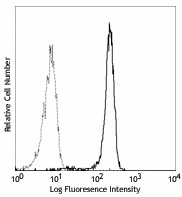
-

Human peripheral blood granulocytes stained with 5E8/CXCR2 FITC
| Cat # | Size | Price | Quantity Check Availability | Save | ||
|---|---|---|---|---|---|---|
| 320704 | 100 tests | 184€ | ||||
CXCR2 is a 67-70 kD seven-transmembrane protein, also known as IL-8 receptor B (IL-8RB), CD182, and CD128b. It is a CXC chemokine receptor belongs to G protein-coupled receptor (GPCR) family. CXCR2 is expressed as homodimer or heterodimer with CXCR1 and found on granulocytes, NK cells, subset of T lymphocytes, mast cells, monocytes, endothelial cells, megakarocytes, and oligodendrocytes. CXCR2 mediates neutrophil activation and chemotaxis, megakaryocytic proliferation, and angiogenesis via binding its ligands including IL-8(CXCL8), NAP-2(CXCL7), GCP-2(CXCL6), and GRO-α,β,γ (CXCL1, CXCL2, CXCL3).
Product DetailsProduct Details
- Verified Reactivity
- Human
- Antibody Type
- Monoclonal
- Host Species
- Mouse
- Immunogen
- Human CXCR2 transfected L1.2 cells
- Formulation
- Phosphate-buffered solution, pH 7.2, containing 0.09% sodium azide and BSA (origin USA)
- Preparation
- The antibody was purified by affinity chromatography, and conjugated with FITC under optimal conditions.
- Concentration
- Lot-specific (to obtain lot-specific concentration and expiration, please enter the lot number in our Certificate of Analysis online tool.)
- Storage & Handling
- The antibody solution should be stored undiluted between 2°C and 8°C, and protected from prolonged exposure to light. Do not freeze.
- Application
-
FC - Quality tested
- Recommended Usage
-
Each lot of this antibody is quality control tested by immunofluorescent staining with flow cytometric analysis. For flow cytometric staining, the suggested use of this reagent is 5 µl per million cells in 100 µl staining volume or 5 µl per 100 µl of whole blood.
- Excitation Laser
-
Blue Laser (488 nm)
- Application Notes
-
Additional reported applications (for the relevant formats) include: The 5E8/CXCR2 antibody is useful for immunofluorescent staining and flow cytometric analysis of CXCR2 expression.
-
Application References
(PubMed link indicates BioLegend citation) -
- Kyriakakis E, et al. 2011. J Leukoc Biol. 90:929. PubMed.
- Product Citations
-
- RRID
-
AB_439805 (BioLegend Cat. No. 320704)
Antigen Details
- Structure
- Seven transmembrane spanning, G protein-coupled receptor (CPCR), 67-70 kD, homodier or teterodimer with CXCR1
- Distribution
-
Granulocytes, NK cells, subset of T cells, monocytes, endothelial cells, oligodendrocytes
- Function
- Neutrophil activation, chemotaxis, angiogenesis
- Ligand/Receptor
- IL-8(CXCL8), NAP-2(CXCL7), GCP-2(CXCL6), GRO-& alpha;,ß, γ (CXCL1, CXCL2, CXCL3)
- Cell Type
- Granulocytes, NK cells, T cells, Monocytes, Endothelial cells, Oligodendrocytes, Neutrophils
- Biology Area
- Angiogenesis, Cell Biology, Immunology, Neuroinflammation, Neuroscience
- Molecular Family
- CD Molecules, Cytokine/Chemokine Receptors, GPCR
- Antigen References
-
1. Chuntharapai A, et al. 1994. J. Immunol. 153:5682.
2. Wilson S, et al. 2005. J. Biol. Chem. 280:28663.
3. Emadi S, et al. 2005. Blood 105:464.
4. Omari KM, et al. 2005. Brain 128:1003.
5. Juremalm M and Nilsson G. 2005. Chem. Immunol. Allergy 87:130.
6. Wolf M, et al. 1998. Eur. J. Immunol. 28:164. - Gene ID
- 3579 View all products for this Gene ID
- UniProt
- View information about CD182 on UniProt.org
Related Pages & Pathways
Pages
Related FAQs
- Does staining at room temperature or even at 37°C help for checking chemokine receptors expression?
-
Due to continuous recycling of many chemokine receptors, it may be worthwhile to consider staining at room temperature or at 37°C if the staining at lower temperature (which can potentially reduce receptor turnover) is not optimal.
Other Formats
View All CD182 Reagents Request Custom Conjugation| Description | Clone | Applications |
|---|---|---|
| FITC anti-human CD182 (CXCR2) | 5E8/CXCR2 | FC |
| PE anti-human CD182 (CXCR2) | 5E8/CXCR2 | FC |
| APC anti-human CD182 (CXCR2) | 5E8/CXCR2 | FC |
| Alexa Fluor® 488 anti-human CD182 (CXCR2) | 5E8/CXCR2 | FC |
| Alexa Fluor® 647 anti-human CD182 (CXCR2) | 5E8/CXCR2 | FC |
| PE/Cyanine7 anti-human CD182 (CXCR2) | 5E8/CXCR2 | FC |
| PerCP/Cyanine5.5 anti-human CD182 (CXCR2) | 5E8/CXCR2 | FC |
| APC/Fire™ 750 anti-human CD182 (CXCR2) | 5E8/CXCR2 | FC |
| PE/Dazzle™ 594 anti-human CD182 (CXCR2) | 5E8/CXCR2 | FC |
| Pacific Blue™ anti-human CD182 (CXCR2) | 5E8/CXCR2 | FC |
| TotalSeq™-A1273 anti-human CD182 (CXCR2) | 5E8/CXCR2 | PG |
| TotalSeq™-C1273 anti-human CD182 (CXCR2) | 5E8/CXCR2 | PG |
| Spark Red™ 718 anti-human CD182 (CXCR2) (Flexi-Fluor™) | 5E8/CXCR2 | FC |
| TotalSeq™-B1273 anti-human CD182 (CXCR2) | 5E8/CXCR2 | PG |
Customers Also Purchased
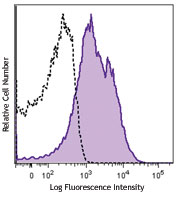
Compare Data Across All Formats
This data display is provided for general comparisons between formats.
Your actual data may vary due to variations in samples, target cells, instruments and their settings, staining conditions, and other factors.
If you need assistance with selecting the best format contact our expert technical support team.
-
FITC anti-human CD182 (CXCR2)
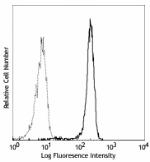
Human peripheral blood granulocytes stained with 5E8/CXCR2 F... -
PE anti-human CD182 (CXCR2)
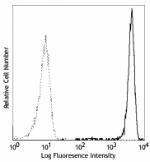
Human peripheral blood granulocytes stained with 5E8/CXCR2 P... -
APC anti-human CD182 (CXCR2)
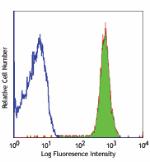
Human peripheral blood granulocytes stained with 5E8/CXCR2 A... -
Alexa Fluor® 488 anti-human CD182 (CXCR2)
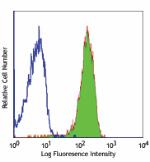
Human peripheral blood granulocytes stained with 5E8/CXCR2 A... -
Alexa Fluor® 647 anti-human CD182 (CXCR2)
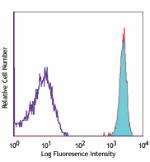
Human peripheral blood granulocytes stained with 5E8/CXCR2 A... -
PE/Cyanine7 anti-human CD182 (CXCR2)
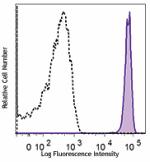
Human peripheral blood granulocytes were stained with CXCR2 ... -
PerCP/Cyanine5.5 anti-human CD182 (CXCR2)
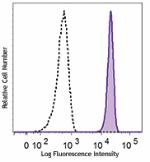
Human peripheral blood granulocytes were stained with CXCR2 ... -
APC/Fire™ 750 anti-human CD182 (CXCR2)
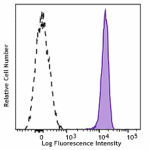
Human peripheral blood granulocytes were stained with CD182 ... -
PE/Dazzle™ 594 anti-human CD182 (CXCR2)
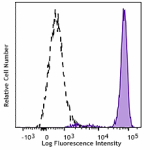
Human peripheral blood granulocytes were stained with CD182 ... -
Pacific Blue™ anti-human CD182 (CXCR2)
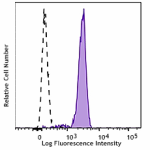
Human peripheral blood granulocytes were stained with CD182 ... -
TotalSeq™-A1273 anti-human CD182 (CXCR2)
-
TotalSeq™-C1273 anti-human CD182 (CXCR2)
-
Spark Red™ 718 anti-human CD182 (CXCR2) (Flexi-Fluor™)
-
TotalSeq™-B1273 anti-human CD182 (CXCR2)

 Login / Register
Login / Register 










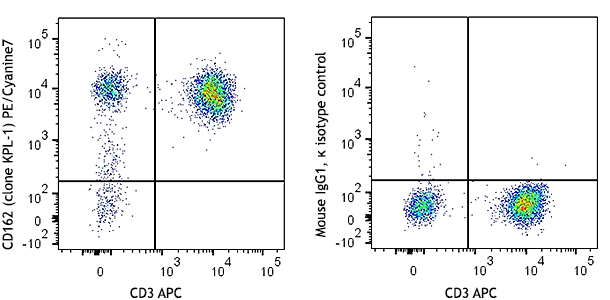
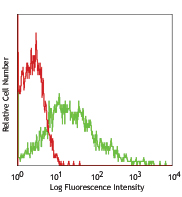
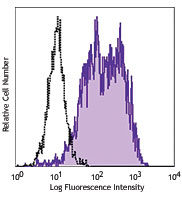



Follow Us